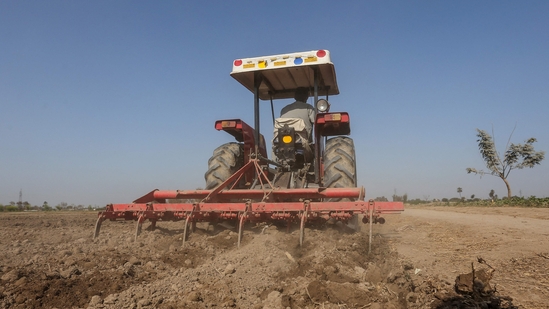Thousands of farmers across Pakistan are set to launch a nationwide protest on April 13 to oppose corporate farming projects being carried out under the federal government’s Green Pakistan Initiative (GPI), Dawn reported. The protest is being organized by a coalition of farmers’ groups, including the Pakistan Kissan Rabita Committee, Anjuman Mazareen Punjab, Hari Jedojehad Committee, Crofter Foundation, and several others.
As part of their protest, rallies and conventions will be held in multiple towns and on public-sector farms across the country. The primary concern of the farmers is the large-scale implementation of corporate farming, which they argue is displacing long-time cultivators and jeopardizing the livelihoods of rural communities.
The farmers are also voicing strong opposition to the construction of controversial canals in southern Punjab. They claim these canal projects threaten local ecosystems and divert water resources away from communities that depend on them for irrigation and daily use.
In addition to halting corporate farming and canal construction, the protesters are demanding the redistribution of all public-sector agricultural land among the peasants who have been cultivating them for generations. Another major demand includes the withdrawal of notices issued to tenant farmers for the payment of millions of Pakistani Rupees in outstanding dues.
One of the key economic demands of the protestors is to fix the wheat procurement price at PKR 4,000 per 40 kilograms for the ongoing harvesting season. They argue that the current pricing fails to account for rising input costs and inflation, pushing farmers into financial distress.
The Green Pakistan Initiative, as outlined by the federal government, aims to transform uncultivated land into productive farmland using cutting-edge technology, including AI-powered monitoring, improved irrigation systems, modern farming tools, and high-yield seeds. While the initiative is positioned as a step toward agricultural modernization and environmental improvement, farmer organizations believe it disproportionately benefits corporations at the cost of smallholders and tenants.
This growing unrest among the agricultural community highlights the tensions between government-led development projects and the rights of local farmers. The April 13 protest is expected to draw significant attention and could serve as a major turning point in Pakistan’s agricultural policy discourse.








 India
India












